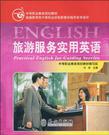旅游服务实用英语
出版时间:2007-3 出版社:外文 作者:付昂主编 页数:159
前言
中国悠久的历史文化和辽阔的疆域奠定了中国旅游资源大国的坚实地位。中国文化更以其独特的魅力吸引了无数海内外的旅游者。2008年北京奥运会的临近更为我国的旅游业带来了更多的发展机遇,同时对我国的旅游教育事业提出了新的要求,特别是培养出高素质专业化的旅游外语人才的要求。为了适应新的形势,满足旅游服务人才培养以及导游翻译人员培训的实际需要,中等职业教材编写组编写了本教材。本教材构思新颖,内容丰富,实用性强,把情景对话和旅游景点介绍结合起来。对话部分突出交际能力的培养,并且全面介绍了涉外导游工作的各个程序,包括机场迎客,致欢迎词,行程安排,登记入住,在酒店,游览景点,用中餐,结帐退房,致欢送词,处理突发事件和投诉等;景点介绍部分,注重提高学生的阅读能力并扩大知识面,主要包括山川游,古迹游,博物馆游,城市游,古镇游等。 每个单元包括:Situational Dialogues,Useful Patterns,Tourism and Travel,Words and ExpressiOIlS,Notes,IntroductiOn 0f Scenic Spots,Exercises,Tips forFour Guides等部分。各个部分的特点最说明如下: Situational Dialogues:会话部分的内容均为导游服务所涉及到的日常英语对话,为读者提供真实情景和地道的英语表达。Useful Patterns:常用句型为读者归纳总结了本交际场合经常用到的英语句型。Tourism and Travel:旅游业和旅游部分以地道的表达为读者讲解旅游业的一些基本概念,旅游业的最新发展,导游的职责等与旅游业和导游相关的知识。 Words and Fapressions:单词和表达部分为读者列出文中出现的专业词汇和景点的英文名称,便于读者查找学习。 Notes:注释部分主要讲解文中出现的难句和长句,为读者排除阅读障碍。
内容概要
本教材构思新颖,内容丰富,实用性强,把情景对话和旅游景点介绍结合起来。对话部分突出交际能力的培养,并且全面介绍了涉外导游工作的各个程序,包括机场迎客,行程安排,登记入住,结帐退房,处理突发事件和投诉等;景点介绍部分,注重提高学生的阅读能力并扩大知识面,主要包括山川游,古迹游,博物馆游,城市游,古镇游等。书中的每个单元包括:Situational Dialogues,Useful Patterns,Tourism and Travel,Words and Expressions,Notes,Introduction of Scenic Spots,Exercises,Tips for Tour Guides等部分。
书籍目录
Unit 1 Meeting Guests at the Airport 机场迎客 Part Ⅰ Situational Dialogues Part Ⅱ Tourism and Travel Part Ⅲ Introduction of Scenic Spots Part Ⅳ Exercises Part Ⅴ Tips for Tour GuidesUnit 2 Welcome Speech 欢迎词 Part Ⅰ Situational Dialogues Part Ⅱ Tourism and Travel Part Ⅲ Introduction of Scenic Spots Part Ⅳ Exercises Part Ⅴ Tips for Tour GuidesUnit 3 Talking about the Itinerary 讨论行程安排 Part Ⅰ Situational Dialogues Part Ⅱ Tourism and Travel Part Ⅲ Introduction of Scenic Spots Part Ⅳ Exercises Part Ⅴ Tips for Tour GuidesUnit 4 Checking in 登记入住 Part Ⅰ Situational Dialogues Part Ⅱ Tourism and Travel Part Ⅲ Introduction of Scenic Spots Part Ⅳ Exercises Part Ⅴ Tips for Tour GuidesUnit 5 At the Hotel 在酒店 Part Ⅰ Situational Dialogues Part Ⅱ Tourism and Travel Part Ⅲ Introduction of Scenic Spots Part Ⅳ Exercises Part Ⅴ Tips for Tour GuidesUnit 6 Touring around the City 城市观光 Part Ⅰ situational Dialogues Part Ⅱ Tourism and Travel Part Ⅲ Introduction of Scenic Spots Part Ⅳ Exercises Part Ⅴ Tips for Tour GuidesUnit 7 Visiting Scenic Spots 游览景点 Part Ⅰ Situational Dialogues Part Ⅱ Tourism and Travel Part Ⅲ Introduction of Scenic Spots Part Ⅳ Exercises Part Ⅴ Tips for Tour GuidesUnit 8 Visiting Museums 参观博物馆 Part Ⅰ situational Dialogues Part Ⅱ Tourism and Travel Part Ⅲ Introduction of Scenic Spots Part Ⅳ Exercises Part Ⅴ Tips for Tour GuidesUnit 9 Dining at a Chinese Restaurant 中国餐馆用餐 Part Ⅰ Situational Dialogues Part Ⅱ Tourism and Travel Part Ⅲ Introdudion of Scenic Spots Part Ⅳ Exercises Part Ⅴ Tips for Tour GuidesUnit 10 Shopping 购物 Part Ⅰ Situational Dialogues Part Ⅱ Tourism and Travel Part Ⅲ Introduction of Scenic Spots Part Ⅳ Exercises Part Ⅴ Tips for Tour GuidesUnit 11 Recreational Activities 娱乐节目 Part Ⅰ Situational Dialogues Part Ⅱ Tourism and Travel Part Ⅲ Introduction of Scenic Spots Part Ⅳ Exercises Part Ⅴ Tips for Tour GuidesUnit 12 Checking out 结账退房 Part Ⅰ Situational Dialogues Part Ⅱ Tourism and Travel Part Ⅲ Introduction of Scenic Spots Part Ⅳ Exercises Part Ⅴ Tips for Tour GuidesUnit 13 Farewell Speech 欢送词 Part Ⅰ Situational Dialogues Part Ⅱ Tourism and Travel Part Ⅲ Introduction of Scenic Spots Part Ⅳ Exercises Part Ⅴ Tips for Tour GuidesUnit 14 Handling Emergencies 处理突发事件 Part Ⅰ Situational Dialogues Part Ⅱ Tourism and Travel Part Ⅲ Introduction of Scenic Spots Part Ⅳ Exercises Part Ⅴ Tips for Tour GuidesUnit 15 Dealing with Complaints 应对投诉 Part Ⅰ situational Dialogues Part Ⅱ Tourism and Travel Part Ⅲ Introduction of Scenic Spots Part Ⅳ Exercises Part Ⅴ Tips for Tour GuidesUnit 16 Outbound Travel 出境游 Part Ⅰ situational Dialogues Part Ⅱ Tourism and Travel Part Ⅲ Introduction of Scenic Spots Part Ⅳ Exercises Part Ⅴ Tips for Tour Guides
章节摘录
插图:Mr.Brown:We’11 stay in Nanjing for 5 days,right7.Lily:Yes.And then you’11 leave Nanjing for home by air.The whole trip willlast half a month.I hope your group are well prepared for this long trip.Mr.Brown:No problem.Everybody is healthy and strong.Lily:Well.If there should be any change,please let me know in advance.Mr.Brown:OK.Thank you very much for such a full and interesting itinerary.Lily:My pleasure.The following is a dialogue between a tourist and a tour guide."l'hey are disctm!ngthe itinerary for a Iieiiing tour.Tour guide:I’ve made a plan for the following days.Please go it over and see ifthere at-e any placesv jrou are interested in:Tourist:But I have im itinerar~t provided by the travel agency in the USA.Theyhave listed the places I aln supposed to visit.Tour guide:May I see the list,please?Tourist:Here you are.But I’m sure you know much better than those people inthe USA.1 will follow your suggestion.Tour guide:Thank you.According to my plan,the first day,that’S tomorrow,we willvisit the largest square in the world,Tian’mll Square.Then I’U showyou the Palace Museum right tO the~north of the square.Before lunch,we will go to the Summer Palace where our lunch is reserved.Tourist:That sounds very attractive.Tour guide:The morning is a bit tight but the afternoon will be relaxing.We will goto see the pandas in Beijing Zoo before visiting a souvenir shop.Tourist:Yes.1 would like to buy some souvenirs.Tour guide:The next day will be long.We will visit the Ming Tombs and the Great Wall.一Tourist:That would be tough.Can I climb the Great Wall7Tour guide:It’s all up to you.Tourist:What will We do Oil the third day?Tour guide:I’11 take you to a big and famous temple,the Temple of Heaven.After lunch,We’11 have to leave for the airport.Tourist:Everything sounds great.Thank you very much.Tour guide:You’re welcome.See ybu tomorrow at 8 0’clock.
编辑推荐
《旅游服务实用英语》:中等职业教育规划教材。根据教育部中等职业学校新教学指导要求编写。
图书封面
评论、评分、阅读与下载
用户评论 (总计6条)
- 年代有点远了的一本书,凑合用吧。
- 买书的时候就是特别关注了一下内容,其他的没怎么在意。首先自己对英语比较感兴趣,然后觉得内容可能以后会用到,更重要的就是想强化一下自己的口语。其他的都很满意,就是怪自己没看仔细本书的录音部分没有随附光盘或相应的mp3资料,所以就是一点小遗憾了!
- 我以为是旅游时对话的实用英语,原来很介绍的,短文,不适合我
- 书内容还没细看,但纸张一般!
- 旅游服务实用英语,很实用的书。
- 价格还行,内容可以
